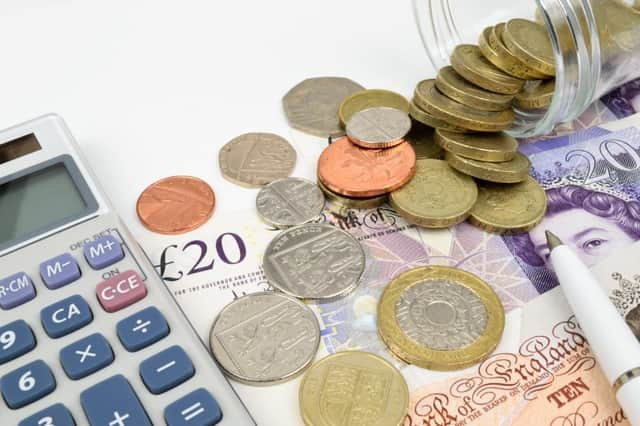This is when benefits and tax credits will be paid over Christmas and New Year 2020 - including child benefit and Universal Credit


This year many people are already struggling financially due to the pandemic, with the festive season meaning budgets will have to stretch even further.
The Department for Work and Pensions (DWP) has announced when people will receive their benefits over the Christmas period.
Advertisement
Hide AdAdvertisement
Hide AdThese dates are different to when claimants would usually be paid as there are multiple bank holidays around the corner.
As well as Christmas Day, 28 December is a bank holiday in 2020, since Boxing Day falls on a Saturday. New Year’s Day is also a bank holiday.
Universal Credit claimants will also receive a one-off Christmas welfare bonus, the DWP has confirmed.
Those who qualify will get £10 extra on top of their current payments.
Advertisement
Hide AdAdvertisement
Hide AdHere’s the Christmas dates when your benefits will be paid.
When is Universal Credit paid at Christmas?
Universal Credit is usually paid into a claimant’s account on the same date every month.
However, the date you are paid changes if the day is a bank holiday or a Saturday or Sunday.
In this case, you will be paid on the Friday before the original payment date.
Advertisement
Hide AdAdvertisement
Hide AdThis minimises financial distress for claimants by ensuring you are not waiting on payments.
For this Christmas, the Universal Credit payment dates are as follows:
- If your payment is due between Christmas Eve and 28 December, you will be paid on Christmas Eve.
- If your payment is due on 30 December, you will be paid on that day.
- If your payment is due on 31 December, you will be paid on that day.
- If your payment is due on 1 January, you will be paid on 31 December.
- And if your payment is due on 4 January, you will be paid on that day.
What if I don’t receive my payment?
If for any reason you don’t receive your payment when you are supposed to, you should call the Universal Credit helpline as soon as possible.
The helpline, which is free, can be reached on 0800 328 6544, and lines are open Monday to Friday from 8am to 6pm.
Advertisement
Hide AdAdvertisement
Hide AdIt is closed on bank holidays, so call as soon as you realise your payment hasn’t come through.
When will child benefit be paid over Christmas?
Child benefit payment dates also change over the Christmas period due to the bank holidays.
It is usually paid on either a Monday or Tuesday every four weeks or weekly if you are a single parent.
In England and Wales, if you are due to be paid on 28 December you should receive your money on 24 December.
Advertisement
Hide AdAdvertisement
Hide AdIn Scotland, if you are due your child benefit payment on Monday 4 January 2021 you will be paid on Friday 31 December.
If you are due payment on Tuesday 5 January, you will receive the payment the next day on Wednesday 6 January.
And in Northern Ireland people due to be paid on Tuesday 29 December will be paid a day late.
How can I claim Universal Credit?
To minimise contact during coronavirus, people are advised to apply for Universal Credit online via the UK Government’s website.
Advertisement
Hide AdAdvertisement
Hide AdYou may be eligible for Universal Credit for the following reasons:
- You’re on a low income or out of work
- You’re 18 or over - with some exceptions if you’re 16 to 17
- You’re under State Pension age - or your partner is
- You and your partner have £16,000 or less in savings between you
- You live in the UK
According to the DWP, if you have an appointment or assessment with a work coach at a Job Centre this will be carried out over the phone.
You will be told when you will receive a call via your online portal.
If you have already applied for Universal Credit, your claim starts on the same day you submitted your application and it usually takes around 5 weeks to get your first payment.
Your ID will need to be checked before you can be paid, and you might need to take part in a phone interview with a work coach.